Female candidates are often sought out when discussing gender equality in politics, but for first-time female candidates in the forthcoming 15th general election (GE15), their candidacy is not about filling quotas alone.
The first-time candidates Malaysiakini caught up with say they didn’t join the fray just to make up the 30 percent desired quota or to fight for women’s equality - but they believe their voices in Parliament can make a substantive difference to legislative debates.
Muda’s Siti Rahayu Baharin, 41, attributes her beliefs to memories of growing up watching the role of women in Umno, who formed a formidable part of its machinery but not its leadership.
Born into a family of generational BN voters, the teacher said although women were behind the mobilisation of the party machinery, no more than a handful were entrusted to rise through the ranks.
“Women are compartmentalised (only to the women’s wing) while it’s believed that men can somehow rule everyone,” said Siti Rahayu, who hails from a village in Jerlun, a 30-minute-drive from Alor Setar, Kedah.
Rejecting the idea of female candidates as tokenism, Siti Rahayu said women belonged in leadership because the lived experiences of women better equip them in bridging differences.
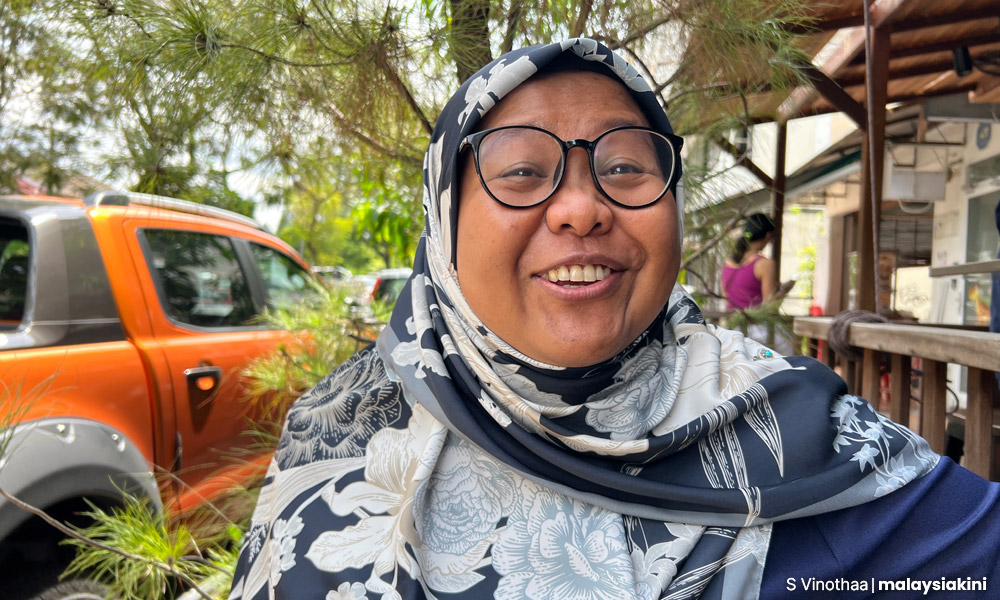
She hopes to win over the hearts and minds of the folk in flood-prone Tanjong Karang, who have been voting for BN since 1974.
The 75 percent Malay majority constituency in Kuala Selangor has also been the stronghold for veteran Umno politician Noh Omar, who first won the seat in 1995 with a majority of 15,818 votes.
However, the candidacy for Tanjong Karang was not announced by BN on Tuesday, Nov 1, when it unveiled most of its candidates, raising speculation that Noh, the entrepreneurship development and cooperatives minister may get the axe.
Make politics a woman’s territory
There is a stereotype that women are more compassionate and kinder than their male counterparts, and Siti Rahayu leans into this.
As the founder of Buku Jalanan Chow Kit, an NGO that provides free education to underprivileged children in the Chow Kit area of Kuala Lumpur, compassion and public service is a large part of her work.
Citing a recent Harvard Business Review report, she said: “If the corporate world can acknowledge the need for compassionate leadership, what more politics, which involves people’s daily lives.”
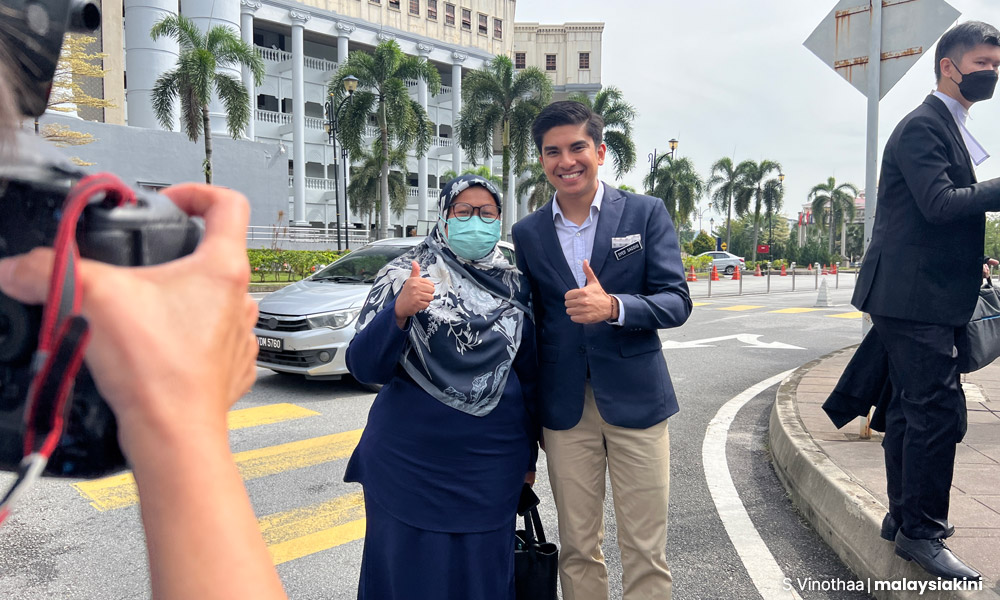
Widely referred to as Cikgu Ayu, she said it is crucial for the country to have policymakers and lawmakers who can protect the most vulnerable of society, especially in times of crisis.
“Women know how to handle a crisis and our country is in crisis now. I believe a group of well-educated, experienced women can help the country manage the current problems,” said Siti Rahayu, who has a Master's Degree in Political Science from International Islamic University Malaysia.
She said seven years of serving in the NGO world has taught her that there is a need for systemic change and it needs political will.
“I reached a (limit) one day when I was at the Immigration Department and all the gaps in the system became clear to me.
“It reminded me that our lives, in every aspect, are political and I decided that it was time for me to be part of the policymaking,” she recalled.
Realisations like these made her inadvertently become a founding member of Muda, when she joined a conversation to start a movement, which later became the youth-based party.
Siti Rahayu said she is also putting herself forward to carve a space for younger women in the world of politics, which is mostly dominated by older men.
“I want to pave the way for more ordinary, talented and brilliant young women without political connections to be comfortable in joining politics,” said the single mother of a 16-year-old girl.
“I call upon more young girls from the kampung (village) to join me and make politics a woman’s territory.”
Fed up with afterthought policymaking
Another first-time candidate but no newcomer to policymaking is Petaling Jaya lass Thulsi Manogaran.
Thulsi, 33, served as a special officer to Teo Nie Ching when Teo served as deputy education minister under the Pakatan Harapan government.
Ten months ago, the litigation lawyer moved to the small town of Buntong in Perak to get a head start on understanding the sentiments on the ground.
She did so without knowing if DAP would nominate her for the seat, as she was determined “not to get blindsided during the elections” if given the opportunity to contest in the state seat.
While she cut her teeth while working with Teo, Thulsi’s “political education” started far earlier, through her father, the one-term Teluk Intan MP M Manogaran, who won the seat in 2018.
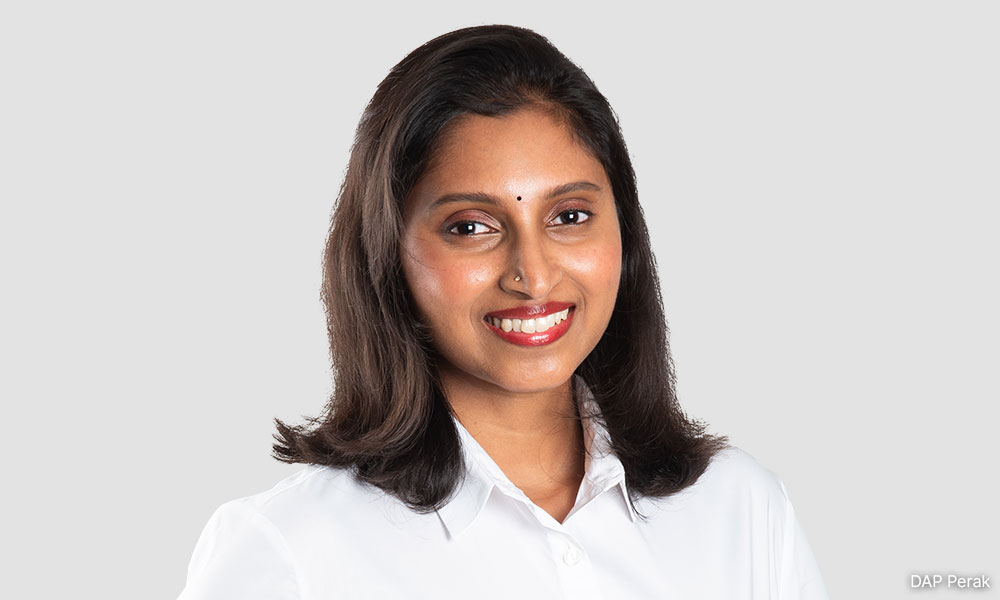
Buntong can be a relatively safe seat for a DAP newcomer, with the party having won there since 2008. In the last election, its majority widened from 8,629 in 2018 to 15,323.
“If I win, I will use this platform to highlight local issues and upgrade Buntong.
“I don’t intend to make big significant policy changes at the federal level if I cannot change the quality of life here.
“The everyday life of people here must change first,” she said, determinedly.
Thulsi said many issues from poor infrastructure to poor government services were rooted in “afterthought policy-making”- something she is fed up with and hopes to change.
Speaking of education and job opportunities as a way to uplift the community, Thulsi believes that women's representation matters in policymaking.
For example, women lawmakers or policymakers are more likely to have experienced having their rights infringed or access denied, so are more likely to work to ensure better conditions for all.
“We understand the actual meaning of access,” said Thulsi, who also hopes to closely cooperate with community organisations in her work.
Won’t be pigeonholed in gender, disability issues
As a woman and a disabled person, PKR’s Putrajaya candidate Noraishah Mydin Abdul Aziz knows what it means to be discriminated against and is a natural spokesperson for gender and disability issues.
But Noraishah, 47, refuses to be pigeonholed into these two areas.
“Men, women, senior citizens, youths and the child in the womb - we are all in trouble because it’s (the country being in crisis) a genderless thing,” said the Universiti Malaya scientist, who was recently revealed among a list of academicians and experts contesting on PKR tickets.
She was merely sharing data with PKR deputy president Rafizi Ramli, in the hope that it can formulate better policies to aid children with spina bifida - and Noraishah was caught by surprise when the opportunity to contest came to her.
“I didn’t expect him to say ‘Aishah, four Keadilan vice-presidents have voted you in to be fielded’,” she said.
However, the outspoken academician said she intends to bring facts and figures to the fight, to sway the electorate to her side.
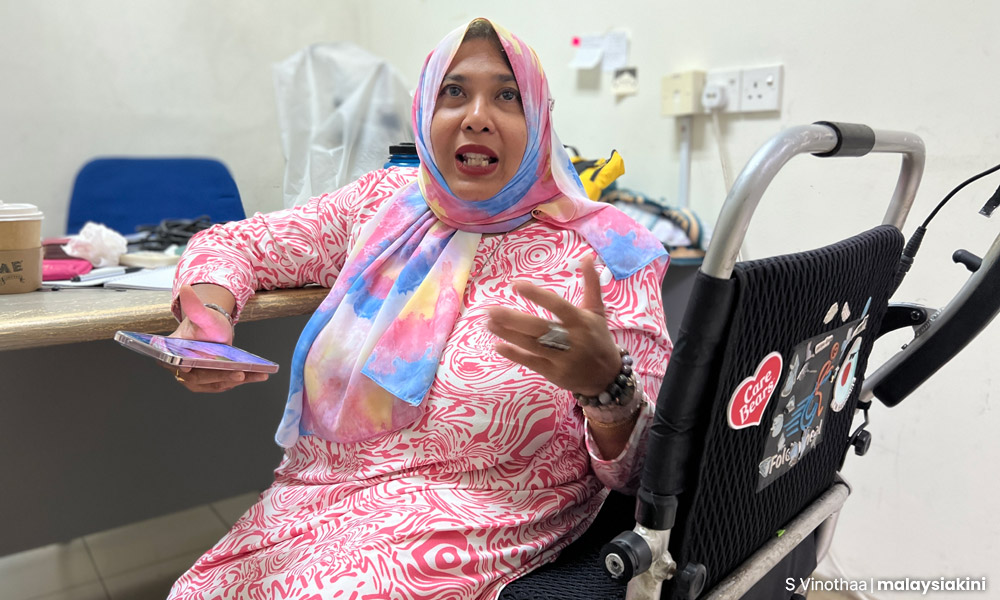
Noraishah, who was born with a birth defect called spina bifida, seeks to oust veteran politician and incumbent Putrajaya MP, Tengku Adnan Tengku Mansor from the Umno stronghold while fending off Perikatan Nasional’s Mohd Radzi Md Jidin.
Radzi, the Education Minister, was teaching forensic accounting at the University of Tasmania in Hobart, Australia, before entering politics in 2018.
Noraishah acknowledged that she has been given a tough seat as Putrajaya is mostly made up of civil servants who are largely perceived to be traditional supporters of BN.
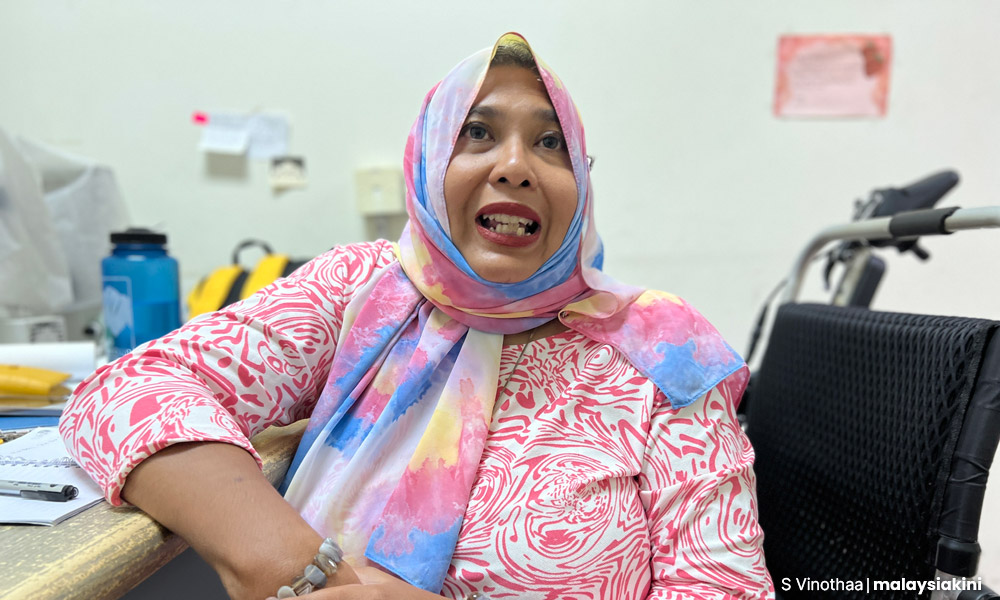
With low chances of winning, PKR has not fielded a candidate there since 2004.
But even in this stronghold, a 95 percent Malay-majority constituency, BN saw its votes decline over the years and Noraishah was banking on it.
“I am going to fight to the death,” she said.
Gaps in Syariah courts’ priority
Bersatu’s Nurul Fadzilah Kamaluddin, 33, believes there is truth in the stereotypes of women being gentler, kinder and more inclusive, and that this worked to their advantage in politics.
“Yes, women are firm yet compassionate and are generally good at multitasking.
“Women also have less ego and therefore tend to listen better,” she said.
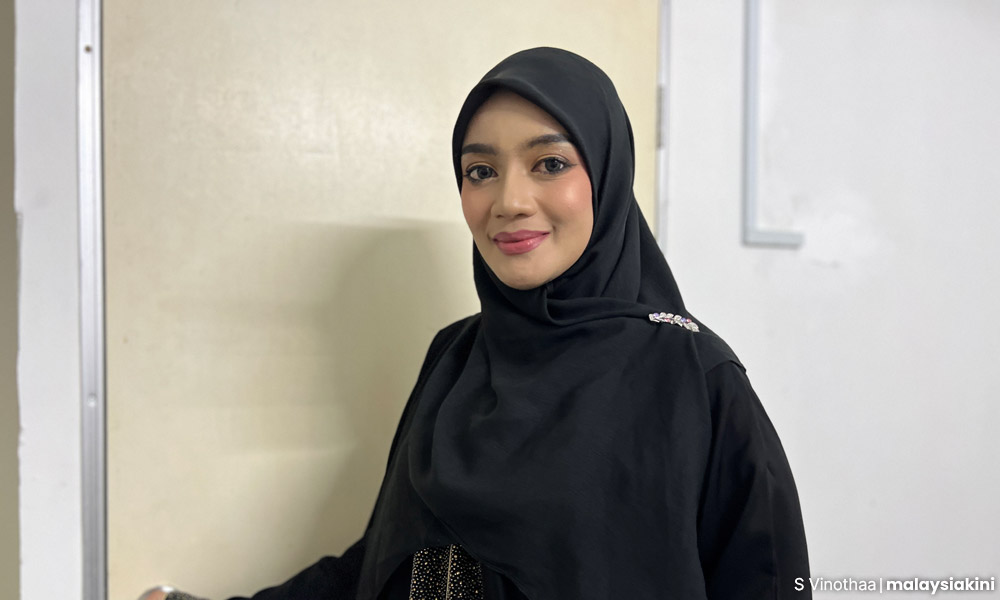
Fadzilah also sees these in herself - qualities which led her to accept the offer to run in Setiawangsa for Bersatu, against incumbent Nik Nazmi Nik Ahmad from PKR, and BN’s Izudin Ishak.
“I like to help and serve people and I feel I can do more in Parliament, which is why I accepted the offer to become a candidate,” said the lawyer who debuted as a television presenter in the programme Bicara Fail Syariah on TV Alhijrah last year.
She said her passion for public service arose when the Covid-19 pandemic hit the country and she mobilised food distribution for those in need.
In 2020, she joined Bersatu and within a year, was made the head of Srikandi Muda, a youth wing for female members.
The youngest of four siblings raised by a single mother, Fadzilah said her work as a civil and Syariah lawyer has exposed her to the many gaps in the system, particularly in cases involving domestic abuse.
As a woman working in the Syariah courts, Fadzilah is more sensitised to how women are disenfranchised in the system and she wants to make a difference in this area.
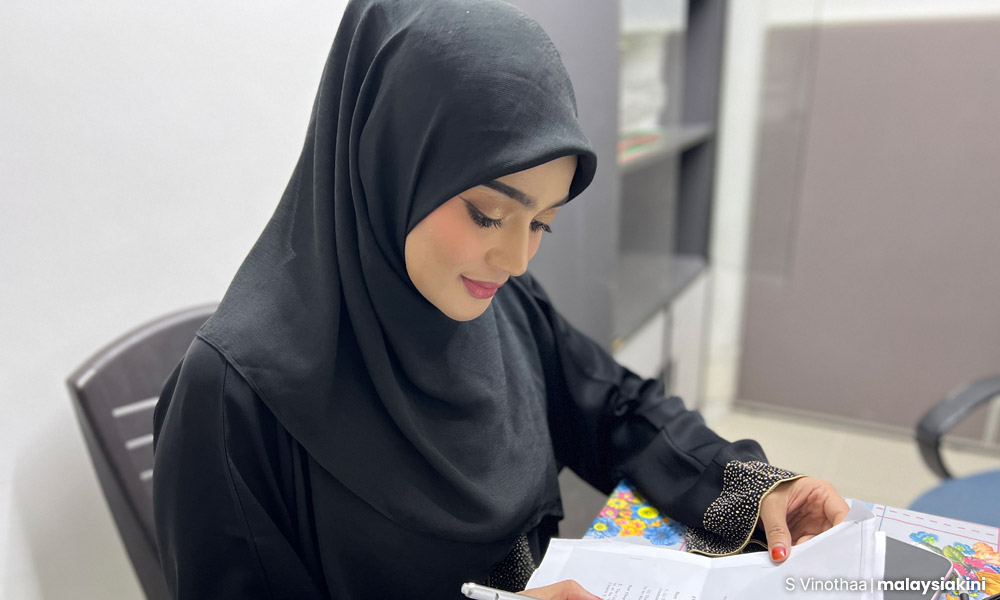
One way she hopes to make a difference is to set up a legal aid team in the Malay-majority constituency of Setiawangsa to assist women in need.
“There is already a lot of assistance in civil courts but apart from Syariah's legal aid, there needs to be more done for women in these courts,” she said. - Mkini




No comments:
Post a Comment
Note: Only a member of this blog may post a comment.